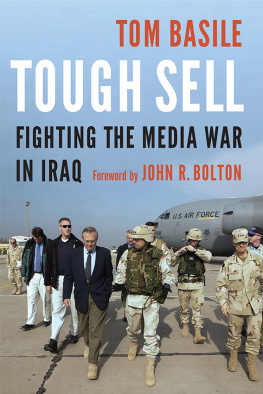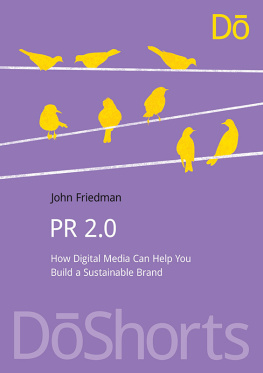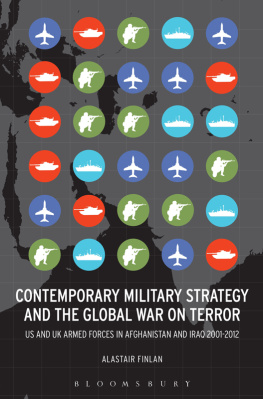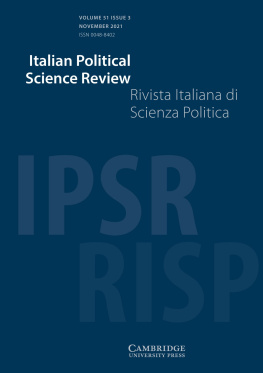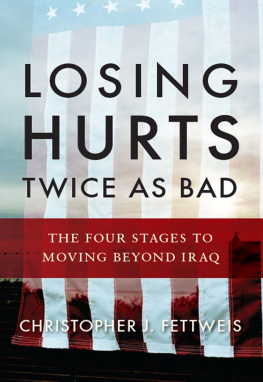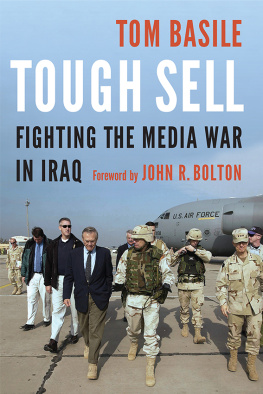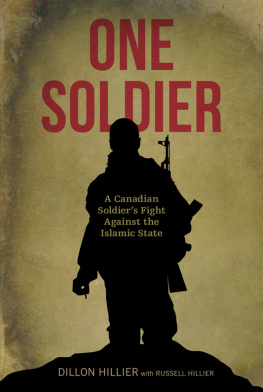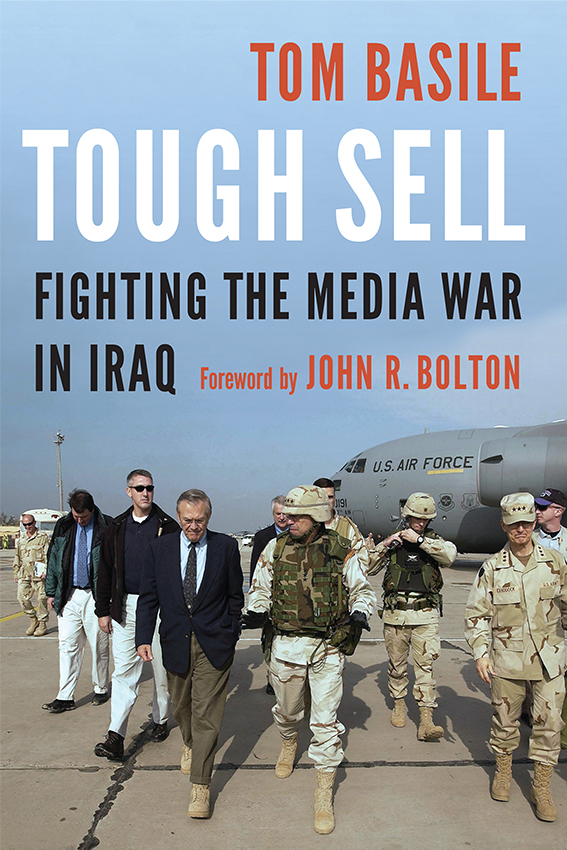This fair, honest, and intensely personal story should inform journalists, policymakers, and the public as we make tough decisions in the fight against ISIS .
Dr. Bob Arnot, New York Times bestselling author and former NBC News foreign correspondent
This candid and engrossing first-person account of communications and media relations in the early days of the occupation in Iraq is full of lessons for ongoing conflicts today.
Max Angerholzer III, president and CEO , Center for the Study of the Presidency and Congress
Its the war in Iraq like youve never seen it before. A must-read for truth seekers about the courage, progress, and challenges we faced, and still do, to prevent media bias from dictating our foreign policy.
Tough Sell
Fighting the Media War in Iraq
Tom Basile
Foreword by John R. Bolton
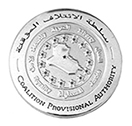
Potomac Books | An imprint of the University of Nebraska Press
2017 by Tom Basile. Foreword 2017 by the Board of Regents of the University of Nebraska.
Cover designed by University of Nebraska Press; cover image courtesy of the National Archives.
Author photo Tom Basile
All rights reserved. Potomac Books is an imprint of the University of Nebraska Press.
Library of Congress Cataloging-in-Publication Data
Names: Basile, Tom, 1975 author. | Bolton, John R., writer of foreword.
Title: Tough sell: fighting the media war in Iraq / Tom Basile; foreword by John R. Bolton.
Description: Lincoln, Nebraska: Potomac Books, an imprint of the University of Nebraska Press, 2017. | Includes bibliographical references and index.
Identifiers: LCCN 2016032572 (print) | LCCN 2016053430 (ebook) | ISBN 9781612349008 (cloth: alk. paper) | ISBN 9781612349077 (epub) | ISBN 9781612349084 (mobi) | ISBN 9781612349091 (pdf)
Subjects: LCSH : War on Terrorism, 20012009Personal narratives. | War on Terrorism, 20012009, in mass media. | Coalition Provisional Authority.
Classification: LCC HV 6432 . B 375 2017 (print) | LCC HV 6432 (ebook) | DDC 956.7044/31 [B]dc23
LC record available at https://lccn.loc.gov/2016032572
The publisher does not have any control over and does not assume any responsibility for author or third-party websites or their content.
For Sgt. Joseph T. Basile, USMC ,
who by example gave me the discipline to embrace a sense of duty.
For all those, both military and civilian,
who sacrifice to protect America from terrorism.
For my wife and children. May they live in an America that is free and free from fear.
Contents
Ambassador John R. Bolton
Those who define todays conventional wisdom in Washington would have us believe that the second U.S.-Iraqi war was a failure. So pervasive is this mindset that, as a presidential candidate, even Jeb Bush, former president George W. Bushs own brother, fled in horror from the prospect of defending the 2003 decision to invade Iraq and overthrow Saddam Hussein. And from this conventional wisdom about Iraq, supplemented by cherry-picked data from public-opinion polls, flows the further conventional wisdom that, in the years ahead, the American public will simply not abide similar U.S. national-security policies.
Notwithstanding its pervasiveness, this conventional wisdom about Iraq is wrong. It is wrong in its factual description of what actually happened in Iraq, wrong about the appropriate conclusions to draw from that experience, wrong about American public opinion (and correspondingly wrong about how to shape that opinion), and wrong about the international policies necessary to protect American citizens and interests in a time of growing uncertainty and indeed growing chaos.
This is not to say that mistakesindeed, serious mistakeswere not made in Iraq both before and after the invasion and overthrow of Saddam Hussein.
Of course there were mistakes, large and small, primarily the assessment of Iraqs capabilities in weapons of mass destruction ( WMD ). Without rearguing this issue, which has and will fill volumes for years to come, Saddams WMD threat was not well explained before the invasion. Neither was it understood well, let alone explained well, once the evidence available failed to meet the expectations raised before the conflict. Unfortunately for sensible national-security analysis, the WMD -related errors about Iraq became public contemporaneously with post-invasion mistakes (often only seen in 20/20 hindsight) that came to dominate the ongoing international, mass-media news coverage of events on the ground in Iraq.
What is perhaps most disturbing about todays conventional wisdom is the careless, intellectually sloppy, and often flatly disingenuous way that mistakes made after Saddams fall have been used to attack the initial policy decision to oust him. In fact, many post-invasion circumstances were neither inevitable nor even reasonably foreseeable before military hostilities began. There is simply no basis in historical causality to assert that everything that happened following the successful removal of Saddam was dictated by the initial decision. To make that point, as the conventional wisdom does, is to contend that the entire course of events in Iraq (and the broader Middle East) flowed solely and unalterably from the 2003 decision to remove Saddam. The conventional wisdom must also posit that, absent the U.S. military action, life in Iraq would have continued essentially unchanged from what it was before 2003. Neither assumption is accurate or even reasonable.
For well or ill, the historical reality is that the U.S. government is good neither at empire-building nor at nation-building. (The government is often not good at nation-building at home either, but thats a debate for a different time.) The notion that some combination of the American political leadership, State and Defense Departments, USAID , and private contractors could re-create a fractured and despoiled country like Iraq was always fanciful. That job was always for the Iraqis themselves. What America did do successfully, up until Barack Obamas catastrophic decision to withdraw all U.S. forces in 2011, was provide a stabilizing and protective presence in Iraq so that Iraqis could make their own decisions. That they made a variety of serious mistakes after decades of crushing authoritarian rule should have surprised no oneexcept, of course, the mainstream American and international media, which seemed almost willfully determined to misunderstand and misreport what was actually happening in the country after Saddams overthrow, as Tom Basile compellingly demonstrates in the pages that follow.
No one book, especially a personal memoir, can resolve these complex issues, but Tough Sell is a critical contribution to the literature of what actually happened in Iraq and more broadly in the region during the post-invasion years. These kinds of first-person narratives are essential for American decision-makers today and tomorrow to understand the fog of war they will encounter not only on the battlefield but also from the media, especially their own fellow countrymen. It is not a pretty sight. Any U.S. president contemplating a controversial, complex policy decision has to recognize that what the media will report will at best often be only coincidentally related to the reality that U.S. personnel on the groundcivilian and militarythemselves experience.

